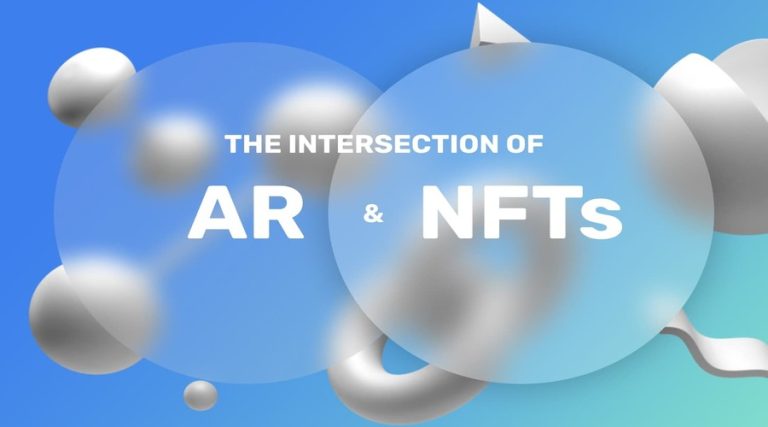
Metaverse Music: The Evolution of Sound in Virtual Reality
The world is constantly evolving, and so is the music industry. With the rise of virtual reality, we are witnessing the emergence of a new form of music experience: Metaverse music. In this article, we will explore the evolution of sound in virtual reality, how Metaverse music is changing the way we interact with music, and what the future holds for this exciting new genre.
What is Metaverse Music?
Metaverse music is a new form of music experience that takes place in virtual reality. In the Metaverse, users can create, share, and interact with music in ways that were previously impossible. From immersive concerts to interactive music-making experiences, Metaverse music is breaking down the barriers between artists and fans and creating a new form of music culture.
The Evolution of Sound in Virtual Reality
The concept of sound in virtual reality is not new. From early experiments in the 1990s to the emergence of virtual reality headsets in recent years, sound has always been an important part of the VR experience. However, it is only in the last few years that we have seen a significant evolution in the use of sound in VR.
One of the key developments has been the use of spatial audio. This technology allows sound to be placed in three-dimensional space, creating a more immersive and realistic experience. Spatial audio has been used in a range of VR applications, from video games to education and training simulations.
The Rise of Metaverse Music
Metaverse music has been made possible by the convergence of several technologies, including virtual reality, spatial audio, and blockchain. These technologies have enabled artists and fans to interact with music in new ways, creating a new form of music culture.
One of the key features of Metaverse music is the ability to create immersive concerts. Artists can perform live in virtual reality, and fans can attend the concert from anywhere in the world. This has opened up new opportunities for artists, allowing them to reach a global audience without the need for expensive tours.
Another important feature of Metaverse music is the ability to create interactive music-making experiences. Users can collaborate with other users to create music in real-time, breaking down the barriers between artist and fan and creating a more inclusive music culture.
The Impact of Metaverse Music on the Music Industry
Metaverse music is disrupting the traditional music industry by providing new opportunities for artists to connect with their fans and monetize their music. In the Metaverse, artists can create new revenue streams through virtual concerts, merchandise, and collaborations.
One of the key benefits of Metaverse music is the ability to create a more personalized music experience for fans. In the Metaverse, fans can interact with music in new and exciting ways, such as creating their own remixes or collaborating with other fans to create new music.
Another impact of Metaverse music on the music industry is the potential to create new models of music ownership and distribution. Blockchain technology can be used to create decentralized music platforms, where artists and fans can interact directly without the need for intermediaries such as record labels.
The Challenges of Metaverse Music
While Metaverse music is an exciting new genre, it also presents several challenges. One of the key challenges is ensuring that artists are properly compensated for their work. With the rise of decentralized music platforms, there is a risk that artists may not receive fair compensation for their music.
Another challenge is the potential for copyright infringement. With the ease of sharing music in the Metaverse, there is a risk that copyrighted music may be shared without permission, leading to legal disputes and other issues.
The Future of Metaverse Music
The future of Metaverse music is still uncertain, but there are several trends that are likely to shape the future of this exciting new genre. One trend is the increasing convergence of virtual reality and augmented reality. This will enable even more immersive and interactive music experiences, where fans can interact with music in new and exciting ways.
Another trend is the rise of decentralized music platforms. These platforms will enable artists and fans to interact directly, without the need for intermediaries such as record labels. This could lead to a more equitable music industry, where artists are properly compensated for their work.
The Bottom Line
Metaverse music is an exciting new genre that is changing the way we interact with music. With the rise of virtual reality and blockchain technology, we are seeing a new form of music culture emerge, one that is more immersive, interactive, and inclusive. While there are challenges to be overcome, the future of Metaverse music looks bright, and we can expect to see even more exciting developments in this field.
FAQs
Q: What is metaverse music?
A: Metaverse music refers to the use of sound and music in virtual reality environments, where users can interact with and experience music in immersive and interactive ways.
Q: How is metaverse music different from traditional music?
A: Metaverse music is different from traditional music because it takes advantage of the interactive and immersive nature of virtual reality to create new and unique experiences. Instead of simply listening to music, users can explore virtual environments that respond to the music in real time, creating a more engaging and participatory experience.
Q: What are some examples of metaverse music?
A: Examples of metaverse music include virtual concerts, immersive music videos, and interactive soundscapes. Some virtual reality platforms, such as VRChat and Sansar, also allow users to create their own music experiences within the virtual environment.
Q: What are the benefits of metaverse music?
A: Metaverse music offers several benefits, such as increased engagement and interactivity, the ability to create unique and personalized experiences, and the potential for new revenue streams for artists and creators.
Q: What is the future of metaverse music?
A: The future of metaverse music is likely to be shaped by advancements in virtual reality technology, such as haptic feedback and spatial audio, which will allow for even more immersive and interactive music experiences. Additionally, as the metaverse continues to grow and evolve, there will be new opportunities for artists and creators to explore and experiment with this new form of music.
I’m a professional writer. I have been writing about Cryptocurrencies for more than 2 years now and I consider myself one of the best authors in this field. I am very passionate about this technology and I believe that it will change the world as we know it. If you want to learn more about cryptocurrencies, you should definitely check out my work!


